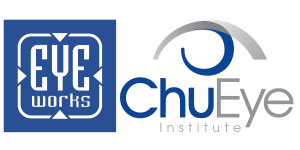The Implantable Collamer Lens (ICL), or Implantable Contact Lens as it is commonly called, is an alternative to laser vision correction surgery. It offers similar benefits as standard external contact lenses, but with a difference.
The main difference is that the ICL is implanted inside the eye, between the iris and the natural lens. The ICL does not replace the eye’s natural lens, but is specially shaped to help correct vision problems such as farsightedness, nearsightedness, and astigmatism.
Below we’ll discuss some of the pros and cons of the ICL to help you understand who would best benefit from this procedure.
Pros of ICLs
Implantable contact lens (ICL) surgery is an effective, safe, and quick procedure that offers long-term vision correction. ICL surgery benefits include:
Minimally Invasive – An ICL procedure requires only a microscopic incision, without the need for stitches. It’s a short procedure, with minimal downtime afterward.
Excellent Visual Quality – The quality of vision is excellent with ICL, because the eye maintains a natural corneal shape, especially with higher prescriptions.
No Dry Eye – During ICL implantation, the corneal nerves are not disrupted, as happens with laser refractive surgery (LASIK). This helps patients avoid the dry eye syndrome commonly experienced after laser surgery
Good for Patients Ineligible for LASIK – Thin or irregular corneas, very high prescriptions, large pupils, and dry eye syndrome, can all disqualify someone from LASIK surgery. An ICL is a great alternative if you have been told you should not have LASIK due to any of these issues.
Completely Reversible – The ICL can be removed or replaced in the event of problems or a change in a patient’s vision, giving you the option to undergo another vision correction procedure, if needed.
Cons of ICLs
The risks of the implantable contact lens are very low, but it’s important to know its limitations.
It’s Not for Everyone – The ICL is primarily meant for those in the 18-50 age group. The eyes of children under 18 are still developing, and if you’re over 50, your eyes are also changing and may soon develop cataracts, a natural clouding of your lens.
Insurance Coverage is Unlikely - An ICL will most likely not be covered by most insurance plans as it is considered a cosmetic procedure. An ICL is custom-made for each individual, making it more expensive per eye than LASIK.
Regular Check-Ups – ICL’s are intended to stay in place indefinitely. However, it is still recommended to have regular appointments to ensure that the implants are in position and functioning properly. These appointments are also an opportunity for your eye doctor to check for premature cataracts or increased pressure in your eye.
Will ICL Work for Me?
We know that surgery can be nerve-racking but be reassured that the ICL process is done as smoothly and efficiently as possible. ICL is just another advanced surgery option to treat and improve your vision.
If you are currently looking into different corrective vision procedures, we suggest you schedule an appointment with Eyeworks in Ft. Worth. We can provide you with information about ICL and see if it best suits your needs.
At Eyeworks, we put your family's needs first. Talk to us about how we can help you maintain healthy vision. Call us today: 817-346-7077 or book an appointment online to see one of our Ft. Worth eye doctors.
Want to Learn More? Read on!
FOLLOW US:








